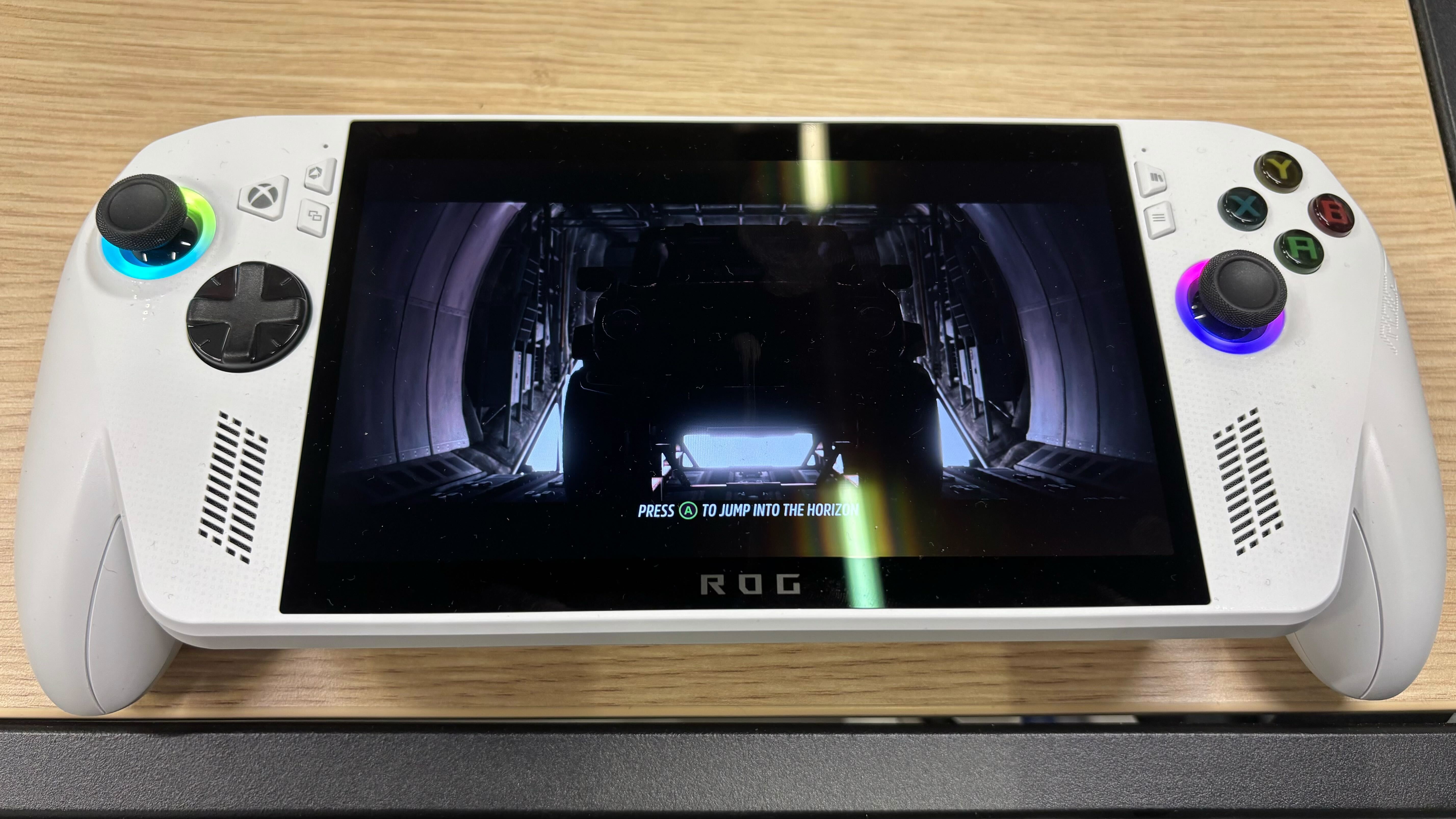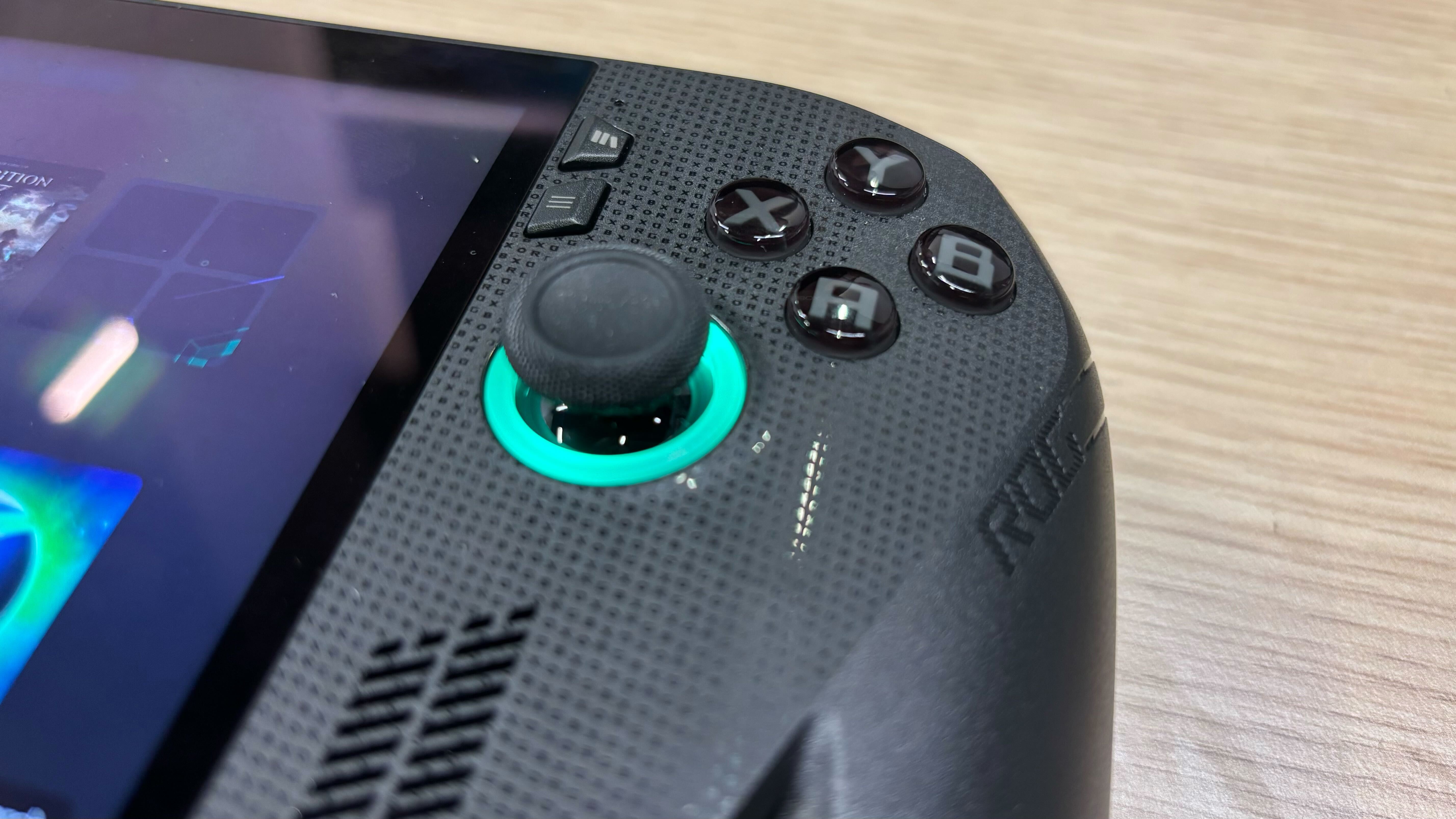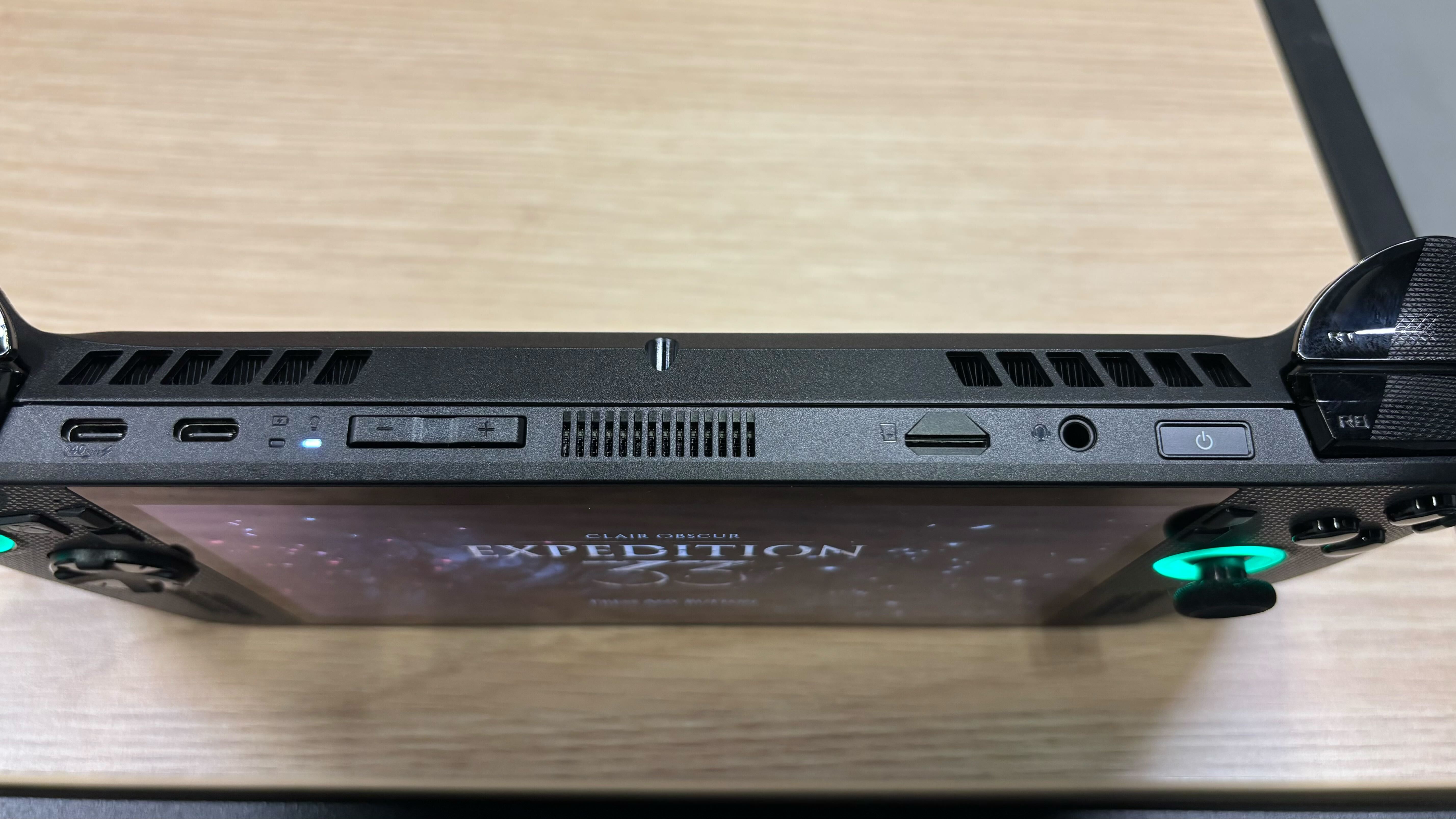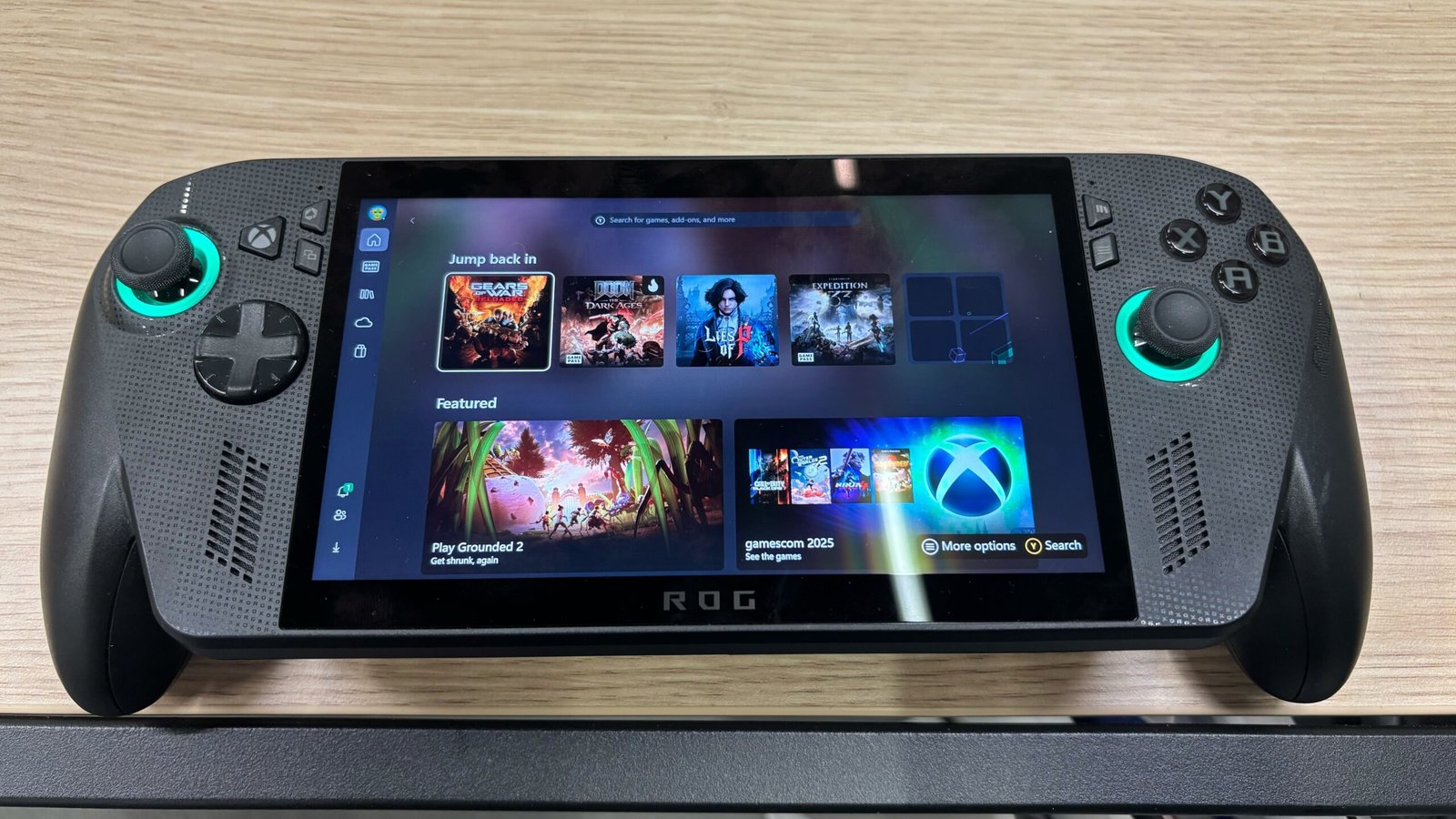At Gamescom 2025, I had the opportunity to try out the Asus ROG Xbox Ally and Asus ROG Xbox Ally X for roughly half an hour. And while that’s certainly not enough time to provide a formal review, I can’t confidently say that the PC gaming handheld set the best first impression.
Admittedly, I’m somewhat of a newbie when it comes to the PC gaming handheld space. I’ve never owned a Steam Deck, and the original Asus ROG Ally passed me by. I have a decently capable gaming PC and a Nintendo Switch 2 for when I want to engage in some portable-friendly gaming. I’ve personally never felt the want or need to own a device like the Xbox Ally, despite many of them quite rightfully being among the best handheld gaming consoles money can buy.
So when I got the chance to try out the Xbox Ally ahead of its release next month, I was feeling optimistic and open to having my mind changed. I understand the appeal of PC gaming handhelds, and I’ve plenty of friends and colleagues who swear by the Steam Deck as their go-to gaming device of choice. Clearly, there are things to love in the space. But I’m sad to say that the Asus ROG Xbox Ally hasn’t won me over just yet.
Load-bearing

The appeal of the Xbox Ally is clear. Having access to your Xbox library on top of Steam and others is undoubtedly an excellent highlight for many. Particularly those invested in the Xbox ecosystem already. You’re getting the full Xbox Series X|S dashboard here, along with access to your Xbox games, Game Pass, Cloud Gaming, and the Microsoft Store.
Frankly, I love the idea, and it’s perhaps the best demonstration of Microsoft’s ‘this is also an Xbox’ marketing spiel. It doesn’t feel cynical here; there’s a very real application to taking your Xbox library out on the go with you, just as it is for Steam Deck and your Steam library.
In practice, though, I feel the execution is unwieldy at best. There’s no getting around that PC gaming handhelds of today are bulky, relatively heavy machines when compared to less-powerful portable systems. I get the need for the size, of course, but it also just leads to a rather uncomfortable gaming experience.
The ergonomics of the Xbox Ally are actually fine. I grew to like the system’s controller-like grips, and I had no trouble finding purchase while holding the weighty device in my hands. Buttons, sticks and triggers are also of a good quality (even if the Xbox Home button sits a little too closely to the left stick for my liking), so there’s no skimping on the design factor here.
The 7-inch FHD display is clean and matches the Nintendo Switch 2’s handheld capabilities of 1080p gaming at up to 120Hz. The screen output did look a touch dark by default, and there’s no HDR support here for either device. But thankfully, support for AMD’s FreeSync variable refresh rate tech should help to smooth out performance for more demanding titles, to an extent.
Mixed performance

On the topic of performance, then, this is where I felt the most jaded about the Asus ROG Xbox Ally. I primarily used the more powerful Xbox Ally X, which boasts 24GB of RAM and a custom AMD Ryzen AI Z2 Extreme processor. By comparison, the standard Xbox Ally scales back to 16GB of RAM and a less capable Ryzen Z2 A processor.
But even with the more potent hardware, performance was a mixed bag. In testing Lies of P, which was pre-installed on the device, the framerate was extremely choppy with ‘Medium’ graphics settings. Also at roughly middle-of-the-road settings, Gears of War: Reloaded was similarly chuggy, too.
I think I would recommend playing your more demanding games with lower settings wherever possible. Case in point: Forza Horizon 5 ran beautifully on both the Ally and Ally X. Here, lower settings did not have a drastic impact on image quality, and it looked great on that 1080p display, while running at a very clean 60 frames per second (fps).
Beyond that, I did have some issues with the Xbox dashboard’s features. Chiefly, Xbox’s quick resume feature – which lets you hold multiple games in a standby state without needing to close them – made the Xbox Ally run uncomfortably warm, and the system even crashed once when I attempted to resume a suspended game.
Load times were also quite painful, despite the storage solution of an M.2 SSD (1TB on the Ally X, 512GB on the standard Ally). In-game wasn’t too awful, but booting games up for the first time was a glacial process that ate into precious minutes of my time with these handhelds.
The Ally in the room

Now, I’m by no means expecting top-line performance from PC gaming handhelds such as this. I get that compromises have to be made to ensure demanding games can run even decently on relatively small hardware. But that said, neither handheld felt like it could deliver a polished, clean experience on anything higher than low settings.
That’s obviously not unique to the Xbox Ally. Over on Nintendo Switch 2, you’re likely expecting worse performance and resolution during handheld play. Especially so for more demanding games like Hitman World of Assassination – Signature Edition and Cyberpunk 2077: Ultimate Edition. But here, the experience has been tailored for the Switch 2 specifically, so there’s usually a degree of work that goes into ensuring the games can run amicably on Nintendo’s handheld.
Ultimately, though, if you’re looking to wade into the world of PC gaming handhelds for the first time and like the idea of having your Xbox library with you in portable capacity, then you might find plenty to love about the Asus ROG Xbox Ally. So long as you can get to grips with rocky performance for some titles, I think it will serve those already in the Xbox ecosystem decently well enough.
For everyone else, I still feel the Steam Deck would be the better option. These days, Valve’s handheld can be bought for much cheaper, and dedicated ‘Deck verified’ patches often go a long way to smooth out performance here.
For me, at least for now, the Xbox Ally hasn’t won me over. But it absolutely could at a more affordable price point, for one. That aside, being able to play the best Xbox Series X games on the go is a strong prospect, and I could be moved if future Xbox Game Studios titles like Fable, Gears of War: E-Day, and whatever’s next for Halo and Forza deliver optimized performance on the handheld.
The potential is certainly there, though at present, I think the Xbox Ally will live or die by the strength of future Xbox-made games, and if the next generation of Xbox really comes out swinging, then the device could end up being a very compelling companion piece.

